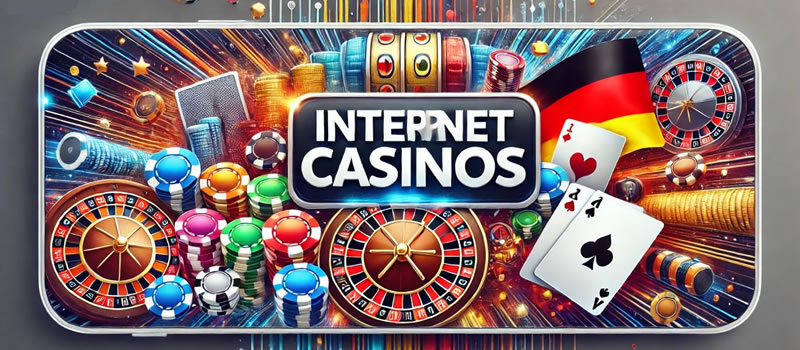The attraction of the jackpot is so strong that people from all walks of life are drawn to it. A strong allure that is hard to resist comes from the chance of winning a sizable quantity of money through gaming at casinos, playing lotteries, or other games of chance. For countless individuals worldwide, the dream of achieving sudden wealth and gaining financial independence overnight is an alluring one. Numerous psychological factors contribute to the jackpot's allure.
Key Takeaways
- Why jackpots captivate us: The excitement of landing a huge win draws people in because of the potential for transformative gains.The dopamine-driven jackpot effect: The brain's response to potential gains, such as winning a jackpot, is driven by the release of dopamine, creating a feeling of pleasure and motivation.Risk and reward dynamics: The attraction to jackpots stems from the combination of risk and potential reward, engaging the brain’s reward circuits.Optimism and hope in jackpot pursuits: The possibility of winning big influences our outlook, fostering feelings of hope and optimism for the future.The impact of social and cultural factors: Our attraction to jackpots is influenced by societal values, cultural expectations, and peer pressure.
The ability to indulge in luxuries without worrying about money and the possibility of becoming financially free is highly appealing to many. The allure of potentially being able to afford anything, such as designer clothes or far-flung travel, pushes individuals to strive for big successes. In addition, a major part of the jackpot's appeal comes from its unexpected nature & uncertainty. One cannot easily duplicate the excitement that is produced by the prospect of striking it lucky with a single lottery ticket purchase or by a large slot machine payout. The draw to jackpots also taps into our innate desire for adventure and thrill-seeking.
The chance of getting rich offers the promise of a thrilling new life beyond the monotony of daily life. Many people are motivated to chase after huge jackpots because they find great resonance in the idea of taking a chance & possibly coming out on top. The thrill of making a big wager or the suspense of waiting for the lottery results are just two examples of how people are drawn to jackpots because they tap into the natural human desire for excitement and risk. The Function of Dopamine in Expecting Rewards. Dopamine is critical in attracting us to potential rewards, which is why jackpots are so alluring.

A neurotransmitter called dopamine is released in reaction to pleasurable experiences like indulging in delectable food, engaging in fun activities, and yes, winning big. Dopamine plays a crucial role in the brain's reward circuits. Dopamine is triggered in our brain when we expect a possible reward, like winning the lottery, which makes us feel good and makes us want to go after the reward even more. The Dopamine-Propelled Chase of Massive Victories. There’s a powerful drive to seek out big wins by the strong psychological pull that is fueled by dopamine production in response to potential gains.
The possibility of winning a massive prize causes the brain to release a large amount of dopamine, which creates a rush of euphoria and joy. It is this dopamine-driven reaction to possible rewards that fuels our craving to take risks in the hopes of Click here striking it rich & pulls us towards jackpots. Addiction and compulsive behavior: the dark side of dopamine. The brain floods dopamine when we anticipate a big win, which can cause addiction-like excitement of excitement and anticipation. Some people develop an addiction to gambling, which can be explained by the role dopamine plays in our draw to jackpots. A powerful psychological force that can result in compulsive behavior & a loss of self-control is created when dopamine is released in response to big win potential.
Our natural desire for risk and reward is strongly linked to the allure of the lottery. The chance of a huge win is a high-stakes game that appeals to our deep need for risk and excitement. Our attraction to jackpots is driven by the risk and excitement that comes with chasing large wins. Many people are motivated by the concept of risk-taking and possibly hitting it big, which motivates them to gamble in the hopes of claiming the grand prize. Humankind’s history as hunter-gatherers may also provide insight into the connection between risk-taking and reward-seeking in our fascination with jackpots.
Taking chances has been crucial to human survival throughout history because it frequently meant the difference between gathering food and going hungry. Because our ancestors found this behavior beneficial in securing resources, it became hardwired in us to look for opportunities with high rewards. Our natural desire for risk and reward continues to influence us today, leading us to chase jackpots and urging us to take more risks in the hopes of hitting big.
Our attraction to jackpots is driven by risk & reward, which relates to our craving for freedom and autonomy. The potential for wealth offers the chance to live life without limits and on one's own terms. The opportunity to take a risk and possibly making huge gains appeals to our innate need for independence and self-determination, which motivates us to go for big wins in the quest for financial independence. A huge part of jackpot allure is the psychology of optimism & hope. The possibility of striking it rich provides a ray of hope for a brighter future, which bolsters our confidence and drives us to go after big wins.
It is difficult to resist the sense of hope that comes from the thought that one fortunate event has the potential to improve our lives. The potential for great wealth draws on our desire for optimism and hope, pushing us to take risks in the quest for future prosperity and stability. The optimism and hope psychology also has a significant impact on how we think in the pursuit of big wins.
We are energized by hope and we are inspired to keep chasing after large wins despite the odds when we have the possibility of winning the jackpot. This sense of hope and excitement can be highly addictive. We take risks in search of financial security because we have an unshakeable sense of hope that one fortunate break could improve our lot in life. The influence of optimism & hope on our thinking regarding jackpots also relates to our innate need to be in charge of our own lives. Our optimism is fueled by the possibility of winning big, which drives us to gamble in the pursuit of financial independence and freedom from financial constraints. It is impossible to overestimate the influence of social & cultural factors on our jackpot fascination.

Individuals might gamble more in an effort to win approval or impress others by feeling pressured to match the success of peers or coworkers who have made money through gambling. Our innate need for status is further evidenced by the influence of social and cultural factors on our attraction to jackpots. What draws us to jackpots and pushes us to gamble in the hopes of hitting the jackpot is the possibility of becoming wealthy and well-recognized, which can further improve one's social status. The Addictive Nature of Jackpot Pursuits. Dopamine's influence on big wins can set off an addictive cycle that pushes people to take on more risk in the hopes of winning big, often at a huge cost.
The act of chasing losses can create a detrimental cycle that could seriously impact someone's finances and general well-being. The Dark Side of the Jackpot: Mental Health Effects. Pursuing big wins can have detrimental effects on relationships and emotional well-being in addition to financial ruin. Gambling addicts frequently struggle with mounting debt & money problems, which can leave them feeling anxious, depression, and feelings of despair.

In addition, chasing jackpots can damage personal relationships, leading to isolation & loneliness. Support and Awareness for Addicts. The dangers of chasing jackpots make it clear that people who may be experiencing compulsive gambling behavior need more understanding and assistance.
It is imperative that society recognize the risks of gambling and provide help to individuals who may be at risk of developing addictive behaviors. By taking these steps, we can endeavor to establish a setting that is safer and more supportive for those struggling to resist the lure of the big win. Create healthy gambling habits to help people manage the psychological effects of jackpot pursuits.
Limiting the time spent and amount of money invested on gambling activities can prevent compulsive habits and lessen the risks involved in chasing large wins. For individuals struggling with gambling addictions linked to chasing jackpots, seeking support from friends, family, or professional counselors can be hugely beneficial. Individuals can protect themselves from falling into addiction by learning effective coping mechanisms for managing stress and anxiety.
Individuals can find alternatives to cope with stress without gambling by staying active, meditating, or finding enjoyable hobbies and pastimes. In conclusion, individuals of all backgrounds are fascinated by the jackpot because of its strong allure. The appeal of large wins is fueled by a variety of psychological factors, ranging from the release of dopamine in reaction to possible rewards to our innate desire for risk and reward. However, in order to prevent developing compulsive gambling behavior patterns, individuals need to recognize the dangers involved in jackpot pursuits and develop strategies for managing the psychological impact of these pursuits.
Individuals can still enjoy the thrill of jackpots without succumbing to addiction by comprehending the psychology underlying our attraction to jackpots & cultivating responsible, responsible gambling behaviors.
FAQs
Why are we drawn to huge jackpots?
The psychology behind the attraction to winning big jackpots stems from the brain's reward system. When we think about winning big, our brains produce dopamine, a neurotransmitter associated with pleasure and reward-seeking. This dopamine release creates a feeling of excitement and anticipation, which can be highly addictive.
Why do people continue to play for jackpots even after experiencing losses?
Gamblers keep playing despite losses because of the phenomenon known as "near-miss" experiences. When individuals come close to winning but ultimately fall short, it triggers a surge of dopamine similar to that of an actual win. This close-call event can create a sense of hope and drives them to keep playing, despite previous losses.
What role does social influence play in the attraction to winning big jackpots?
Social influence plays a significant role in the attraction to winning big jackpots. The prominence of jackpot winners in the media and within social circles can create a sense of social proof, leading individuals to think winning is possible and worth pursuing. Additionally, the joy and celebration around big wins can motivate others to start gambling.
What are the downsides of craving jackpots?
The attraction to winning big jackpots can have negative consequences, particularly when gambling becomes addictive. Constant gambling in pursuit of jackpots can cause financial problems, relationship problems, and trigger emotional distress. Moreover, the allure of winning big jackpots can create false hope and skew one's view of odds.
How can individuals manage their attraction to winning big jackpots in a healthy way?
Individuals can manage their attraction to winning big jackpots with smart strategies by limiting time and money spent on gambling, gambling responsibly, and asking for help if they suspect their interest is turning into an issue. It's important to approach gambling activities with a balanced perspective and to prioritize enjoyment and entertainment over the pursuit of large wins.